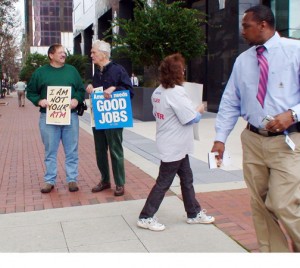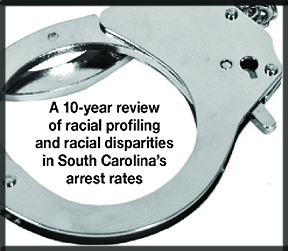By Linda Gunter
Beyond Nuclear
It is perhaps no accident that the nuclear power industry chose a French word – “renaissance” – to promote its alleged comeback. Attached to this misapplied moniker are a series of fallacious suggestions that nuclear energy is “clean,” “safe” and even “renewable.” And, in keeping with its French flavor, a key argument in the industry’s propaganda arsenal is that the U.S. should follow the “successful” example of the French nuclear program.
France serves as a convenient sound bite for politicians and others advocating a nuclear revival (hypocritically evoked by many of the same people who insisted on “Freedom Fries” at the start of the Iraq War). A failure to challenge this facile falsehood has cemented the myth of a French nuclear Utopia in the minds of the public. It masks a very different reality.
France gets 80 percent of its electricity from nuclear power. However, this alone does not constitute a success. Rather, it results in the production of an enormous amount of radioactive waste that, as is the case for all other nuclear countries, has nowhere to go.
France has no operating geological repository for nuclear waste. To date, therefore, it has resorted to reprocessing, a highly contaminating chemical process that separates uranium and plutonium while releasing large quantities of liquid and aerial radioactivity into the environment. These wastes have rendered the seabed near the French La Hague reprocessing center on the Normandy coast equivalent to radioactive waste. Liquid radioactive contamination from La Hague has been found in the Arctic Circle, while radioactive gases such as krypton 85 have been tracked around the world.
However, contrary to myth, reprocessed French waste is not “recycled.” The hottest waste, about 4 percent of the total, is stored at La Hague, along with about 81 tonnes of separated – and proliferation-friendly – plutonium (1 percent of the total). The remaining 95 percent, mostly uranium, is stored at another nuclear center, Pierrelatte, in southern France. Rather than “recycled,” this waste is simply transferred from La Hague operator, Areva, to the French electricity utility, Électicité de France (EDF). France does not have the technology to re-enrich this uranium but some of it is exported to Russia which does.
Nuclear energy has not gained France energy independence. France imports all uranium used in its 58 reactors – having abandoned the last of its 210 uranium mines in 2001. These latter also produced a large waste stream, including tailings (radioactive rocks and soils) that have been used to pave children’s playgrounds and public parking lots.
Today, French uranium is imported largely from Niger where Areva – which, despite its corporate appearance, is 90 percent government-owned – has mined for 40 years. Its legacy in one of the poorest countries on the planet is one of depleted and contaminated water, wide dispersal of radioactive dust and discarded radioactive metals that have been sold in local markets and used in homes.
Nor can nuclear meet all French electricity needs. France imports coal-powered electricity from Germany at peak times, because of its heavy use of electric home-heating. During heat waves and droughts, the French have been forced to power down or close more than a third of their nuclear plants, which rely on water sources such as rivers and lakes for cooling.
None of this has deterred Areva or EDF from driving aggressively into new nuclear markets, especially the U.S., where Aerva is promoting its huge Evolutionary Power Reactor (EPR), with seven targeted at six U.S. sites. Since new reactors are too expensive to build unless federally funded, EPRs in the U.S. could result in American tax dollars flowing to the French government.
However, French nuclear success overseas has proved as elusive as it is at home. All but two of the U.S. EPRs are now on the back burner or canceled altogether. A recent joint report from the British, Finnish and UK nuclear safety authorities challenged the safety of the unproven EPR design. The two EPR flagship construction sites in Finland and France have experienced cost overruns and delays. The Finnish Olkiluoto site is more than three years behind schedule, with cost estimates soaring from $3.6 billion at pre-construction to more than $8 billion currently. Technical errors have plagued both sites.
These problems are by no means unique to the French nuclear industry. They typify the nuclear “renaissance” as a whole, which resembles more of a retreat, a word with decidedly less positive connotations when applied to France.
There are some fine French fashions to be followed – from camembert to haute couture. Nuclear power just doesn’t happen to be one of them.
Gunter is co-founder of Beyond Nuclear and specializes in researching the French nuclear sector. She is also the media and development director for Beyond Nuclear. This editorial was provided by American Forum, a nonprofit, nonpartisan, educational organization that supplies the media with the views of state experts on major public concerns in order to stimulate informed discussion.





